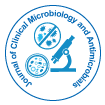

Perspective - (2025)Volume 9, Issue 1
The human microbiome has emerged as a critical component in understanding health and disease, particularly in the context of infectious diseases and antimicrobial treatment. The complex communities of microorganisms that inhabit the human body, especially in the gut, not only influence host immunity and metabolism but also affect how individuals respond to antimicrobial therapy. Traditional antimicrobial regimens have largely followed a one-size-fits-all model, relying on broad-spectrum agents to eliminate pathogens. However, these approaches often result in collateral damage to the beneficial microbiota, leading to dysbiosis, opportunistic infections like Clostridioides difficile, and even long-term consequences such as antimicrobial resistance and metabolic disorders. Recent advances in high-throughput sequencing technologies and bioinformatics have enabled detailed profiling of individual microbiomes, paving the way for microbiome-informed, personalized antimicrobial therapy.
Personalized antimicrobial therapy aims to tailor treatment regimens based on the patient’s unique microbiome composition, susceptibility patterns, and host-pathogen interactions. Microbiome analysis can provide a comprehensive overview of the microbial diversity and functional potential within the host, identifying protective species that could be preserved during treatment or targeted pathogens that require specific interventions. In addition to identifying dominant or pathogenic bacteria, this analysis can detect resistance genes within the microbial community, guiding clinicians in selecting the most effective and least disruptive antibiotics. For instance, metagenomic sequencing of stool samples from patients with recurrent urinary tract infections can reveal the presence of multidrug-resistant E. coli strains residing in the gut, suggesting the need for alternative or narrow-spectrum antibiotics.
One of the significant advantages of incorporating microbiome data into antimicrobial decision-making lies in its potential to reduce treatment failures and adverse effects. By understanding the baseline microbiota of a patient, clinicians can predict who might be at greater risk of antibiotic-induced dysbiosis or superinfections and adjust treatments accordingly. In immunocompromised patients, such as those undergoing chemotherapy or organ transplantation, preserving microbiome integrity is vital to prevent secondary infections and maintain mucosal barrier function. Additionally, microbiome-guided therapy could help optimize the use of probiotics, prebiotics, or fecal microbiota transplantation (FMT) to restore microbial balance following antibiotic exposure.
The integration of microbiome analysis in clinical practice is particularly relevant in the era of antimicrobial stewardship. Personalized insights can enhance the precision of stewardship programs by minimizing unnecessary antibiotic exposure and promoting narrow-spectrum use where appropriate. For example, in respiratory tract infections, differentiating between bacterial and viral etiologies through microbiome patterns and host transcriptomics can prevent unwarranted antibiotic prescriptions. Similarly, in critical care settings, monitoring changes in microbiome diversity over time can serve as an early warning system for nosocomial infections or sepsis development. Such real-time surveillance could fundamentally transform infectious disease management from reactive to proactive care.
Despite its promise, several challenges must be addressed before microbiome-based personalization becomes routine. Technical variability in sample collection, sequencing platforms, and analytical pipelines can influence the interpretation of results. The absence of standardized reference databases and clinical benchmarks for “healthy” versus “dysbiotic” microbiomes makes clinical decision-making complex. Furthermore, turnaround times for sequencing and analysis may not yet align with the urgent timelines often required for antimicrobial decision-making in acute care. Cost and accessibility remain additional barriers, especially in resource-limited healthcare settings. However, as sequencing technologies become faster and more affordable, these limitations are expected to diminish over time.
Another critical consideration is the ethical and legal implications of microbiome data usage. The human microbiome is highly individualized and potentially identifiable, raising questions about privacy, consent, and data ownership. Integration with electronic health records must ensure compliance with data protection standards and transparency in how this information is used to guide treatment. Additionally, the training of clinicians to interpret microbiome data and translate it into actionable insights will be essential for successful adoption.
In conclusion, microbiome analysis holds transformative potential in guiding personalized antimicrobial therapy, offering the possibility of more effective, targeted, and safer treatments. By considering individual microbial landscapes and their interactions with antibiotics, healthcare providers can make more informed decisions that preserve microbial health, enhance therapeutic outcomes, and combat the growing threat of antimicrobial resistance. While challenges remain in standardization, accessibility, and integration, the momentum behind microbiome research is accelerating. As scientific evidence grows and technologies evolve, the inclusion of microbiome insights in routine infectious disease management is poised to become a defining feature of precision medicine in the coming years.
Citation: Reeves S (2025). Role of Microbiome Analysis in Personalized Antimicrobial Therapy. J Clin Microbiol Antimicrob.09:216.
Received: 03-Mar-2025, Manuscript No. JCMA-25-37627; Editor assigned: 06-Mar-2025, Pre QC No. JCMA-25-37627; Reviewed: 20-Mar-2025, QC No. JCMA-25-37627; Revised: 27-Mar-2025, Manuscript No. JCMA-25-37627; Published: 03-Apr-2025 , DOI: 10.35248/ JCMA.25.09.216
Copyright: © 2025 Reeves S. This is an open-access article distributed under the terms of the Creative Commons Attribution License, which permits unrestricted use, distribution, and reproduction in any medium, provided the original author and source are credited.